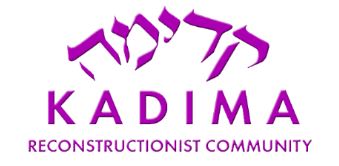As many folks know, I returned from pilgrimage just 12 days ago. The trip leaders were very intentional about the language of pilgrimage. We were not tourists, but we were there to commune with and build relationships with the people we were meeting, the history of the land we were on, and the acts of terror and resistance and joy and beauty and life that have been resonating from there for decades. We were invited, as Rabbi Lawrence Hoffman has written: “Pilgrimage…requires an attitude of reverence toward the site one visits, an acknowledgement of its sacrality, and the performance of sacred rites recording the fact that one has been there.”
There are many ways that I participated in this sort of honoring and documentation. I took notes, made art, took photos, and wrote reflections - of record and remembrance, not of sight seeing.
Passover is a time for pilgrimage as well. On the Jewish calendar there are three sacred seasons of pilgrimage to the Holy Temple - Passover, Shavuot, and Sukkot. They are referred to in Hebrew as the shalosh regalim - colloquially meaning the “three pilgrimage festivals,” but literally translated as the “three feet, or foot paces.” Perhaps mirroring what the Hon. John Lewis was connecting when quoting the African proverb “when you pray, move your feet” or what Rabbi Abraham Joshua Heschel was connecting when he said “it felt like my legs were praying.” (Watch Susannah Heschel speak here on her dad’s march with the Rev. Dr. Martin Luther King Jr.)
In Hebrew, there is another word for pilgrimage - a cognate to Arabic’s hajj: chag, from the Hebrew root kh-g-g. We might know this word to mean “holiday,” as in “chag same’ach!” Holy Days are thus ritualized pilgrimages of time and space - we travel in time to a moment and place of celebration, commemoration, joy, song, resistance, and yes, sometimes terror as well. With each Jewish holiday, we get a glimpse into Jewish time, and all the places where the events of the holiday.
This week we travel together, in our unique and individual ways, to the narrow place(s) and hope that liberation will once again come. We are invited into the idea that we are not actually certain it will. And perhaps the context of the world right now is making that possibility feel very real. Oy.
When we work together, keep one another in mind, work toward liberation, and refuse to leave without each other, we just might be on this pilgrimage together. In body, mind, heart, spirit, and soul.
Join us at Kadima for Passover, or find your own way in with the people you can go there with. And may we all emerge again together. See you there, and if we miss each other, see you on the other side of the sea, I hope.
Shabbat shalom and chag same’ach,
R’ David

 RSS Feed
RSS Feed